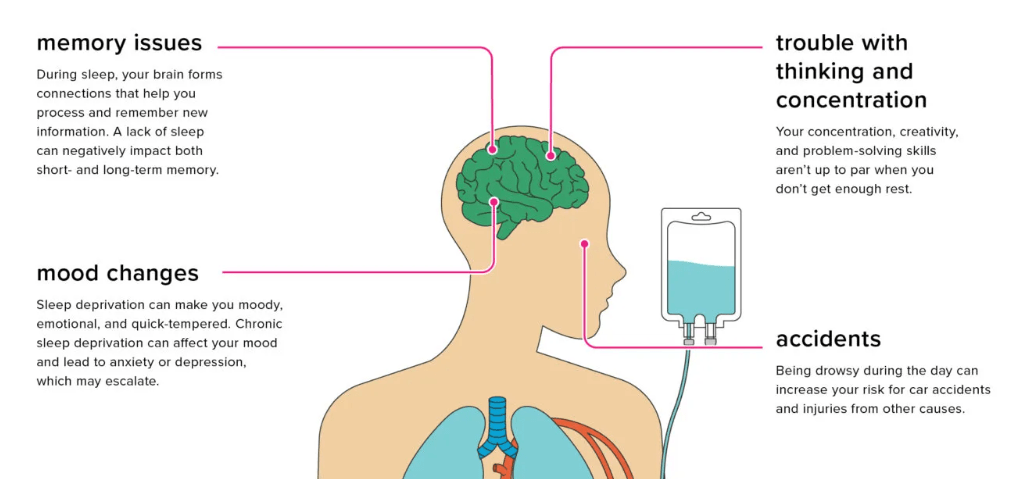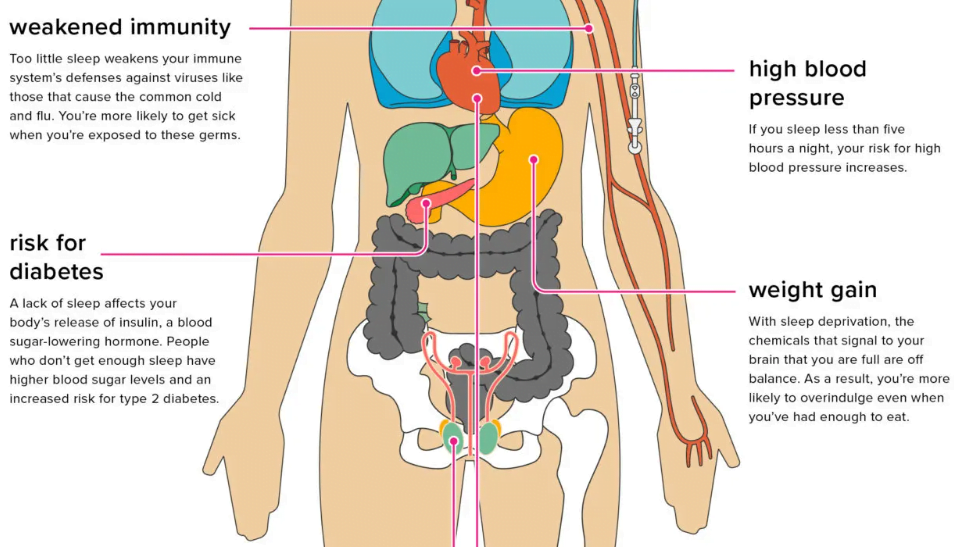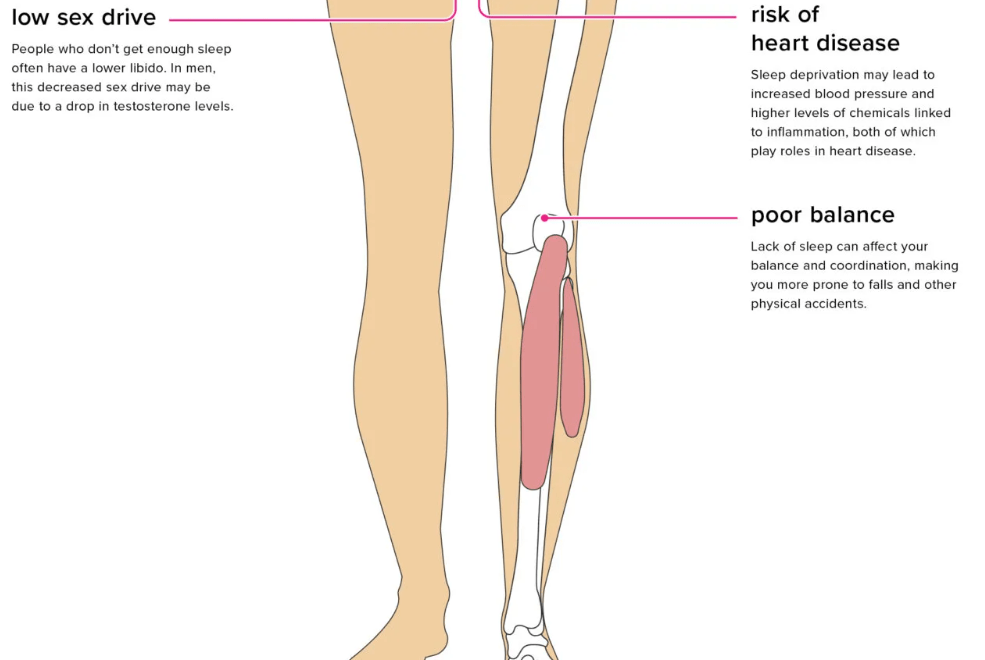Getting eight hours of rest each night is vital to your physical and mental health.

If you’ve ever spent a night tossing and turning, you already know how you’re going to feel the next day — tired, cranky, and out of sorts. But missing out on the recommended seven to nine hours of sleep each night does more than make you feel groggy and grumpy.
Sleep deprivation not only drains your mental abilities but it also puts your health at risk. Poor sleep leads to several health problems, from weight gain to a weakened immune system.



Sleep deprivation also negatively affects your mental abilities and emotional state. You may feel more impatient or prone to mood swings. It can also harm your decision-making and creativity. Other psychological risks include impulsive behavior, anxiety, depression, paranoia, and suicidal thoughts.
So, what can you do? Here are a few ways to get on track with a healthy sleep schedule:
- Limit daytime naps (or avoid them altogether)
- Refrain from caffeine past noon or at least a few hours before bedtime
- Go to bed at the same time each night
- Wake up at the same time every morning
- Keep your bedtime schedule during weekends and holidays
- Spend an hour before bed relaxing by reading, meditating, or taking a bath
- Avoid heavy meals within a few hours of bedtime
- Refrain from electronic devices right before bed
- Exercise regularly, but not in the evening hours close to bedtime
- Reduce alcohol intake
While you can’t guarantee a good night’s sleep, the best way to combat sleep loss is to set yourself up to get seven to nine hours of restful sleep each night.
